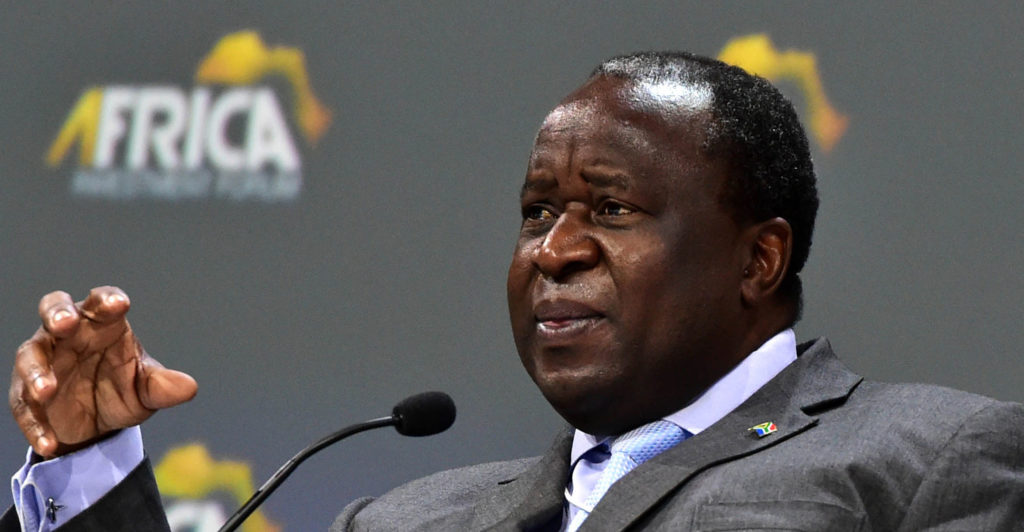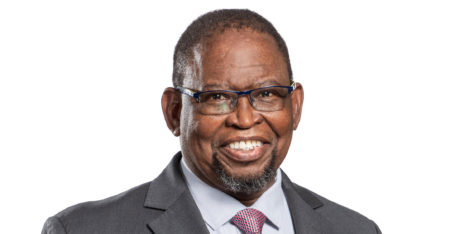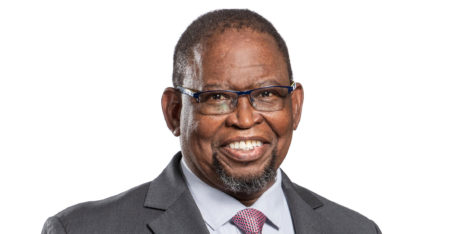
President Cyril Ramaphosa has set a collision course with trade unions that helped bring him to power as the government proposed dramatic curbs to its wage bill to bring spiralling debt under control.
Read the full budget speech here (PDF)
The cuts, already shot down by worker groups, may still not be enough to save the nation losing its last investment-grade credit rating at Moody’s Investors Service.
Pay increases, benefits and promotions will be limited, saving R160-billion over the next three fiscal years, national treasury said in the budget review presented to parliament in Cape Town on Wednesday. It paints a bleak picture of power blackouts restraining growth in the economy, tax revenue falling short of targets and bailouts for struggling state companies draining state coffers.
“We have to get our house in order and it’s going to be a difficult process,” finance minister Tito Mboweni told reporters before delivering his budget speech. “We have to sacrifice, all of us.”
The government has failed in the past to persuade its 1.3 million employees to agree to limit wages, and personnel costs have surged 40% more than inflation over the past 12 years. It faces similar resistance this time, with the Cosatu and the Public Servants Association warning they’ll resist any attempt to make workers bear the brunt of the nation’s economic woes.
The unions have rejected a government proposal to revisit a three-year pay deal that expires next year. Civil servants last staged a strike in 2010 that dragged on for three weeks before they were awarded an inflation-beating 7.5% raise.
The government needs to hold the line to avert a downgrade to junk by Moody’s that could trigger a massive outflow of funds, and to rebuild business confidence that’s near a three-decade low. Yet, Ramaphosa can ill afford to alienate Cosatu, the country’s biggest labour federation that helped him win the leadership of the ANC in 2017 and remains one of his key backers in the deeply divided party.
Will take time
“I think we will find each other,” Mboweni said. “It will take some time.”
The treasury said raising taxes had been at the core of its efforts to stabilise government finances over the past five years, and the focus now has to shift to cutting spending and ensuring money is better used to spur growth in an economy that’s projected to expand just 0.9% this year and 1.3% in 2021. Reforms to electricity, ports and telecommunications, along with changes to government-procurement rules, will help boost output, it said.
For the first time in years, individuals will get some relief to help ease the burden on households. Companies can expect lower tax rates in the medium term.
“Growth in the wage bill has begun crowding out spending on capital projects for future growth and items that are critical for service delivery,” national treasury said. Even with a lower wage bill, treasury will struggle to bring the budget deficit under control.
The gap is projected to widen to 6.8% of GDP in the year to March 2021, from 6.3% in this year. That will be the biggest gap since apartheid ended in 1994. Treasury expects to collect R63.3-billion less this year than it projected a year ago, and has abandoned a target to balance the budget, excluding interest costs and support to the state power utility, by fiscal 2023.
While treasury said the risk to South Africa’s remaining investment-grade credit ratings has become more pronounced, Mboweni said he wasn’t anticipating a downgrade. — Reported by Mike Cohen, with assistance from Rene Vollgraaff, Robert Brand, Prinesha Naidoo, Amogelang Mbatha, Paul Vecchiatto and Zoe Schneeweiss, (c) 2020 Bloomberg LP




